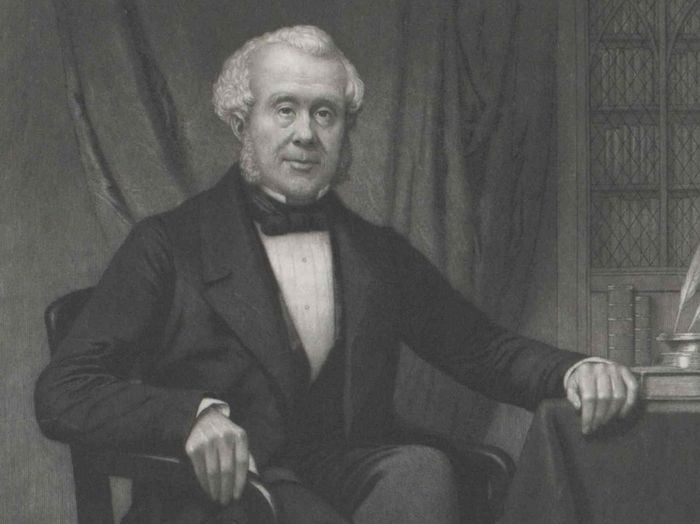Oliver Goldsmith (1728-1774)
Goldsmith`s family were Irish people of English descent. Oliver Goldsmith was born in County Longford, Ireland. He went to Trinity College, Dublin, and after his graduation in 1749, began the study of medicine at Edinburgh. After a short period in Scotland he left for the Continent, where he wandered from country to country.After his return to London in 1756 his early essays and verses attracted the attention of Dr. Johnson, and he became a member of the illustrious group that gathered round that literary monarch. The years between 1759 and 1773 were the most productive of his entire career. The Vicar of Wakefield, which is a landmark in the development of prose fiction, appeared in 1766. Like Addison and Steele and other of the periodical essayists, Goldsmith wrote several short stories of high merit. The Disabled Soldier was first printed in the Citizen of the World, in 1760.
The Disabled Soldier
From the Citizen of the WorldNo observation is more common, and at the same time more true, than that one half of the world are ignorant how the other half lives. The misfortunes of the great are held up to engage our attention; are enlarged upon in tones of declamation; and the world is called upon to gaze at the noble sufferers: the great, under the pressure of calamity, are conscious of several others sympathizing with their distress; and have, at once, the comfort of admiration and pity.There is nothing magnanimous in bearing misfortunes with fortitude, when the whole world is looking on: men in such circumstances will act bravely even from motives of vanity: but he who, in the vale of obscurity, can brave adversity; who without friends to encourage, acquaintances to pity, or even without hope to alleviate his misfortunes, can behave with tranquillity and indifference, is truly great: whether peasant or courtier, he deserves admiration, and should be held up for our imitation and respect.While the slightest inconveniences of the great are magnified into calamities; while tragedy mouths out their sufferings in all the strains of eloquence, the miseries of the poor are entirely disregarded; and yet some of the lower ranks of people undergo more real hardships in one day, than those of a more exalted station suffer in their whole lives. It is inconceivable what difficulties the meanest of our common sailors and soldiers endure without murmuring or regret; without passionately declaiming against providence, or calling their fellows to be gazers on their intrepidity. Every day is to them a day of misery, and yet they entertain their hard fate without repining.
Read More about The Coming of Gandin part 1








